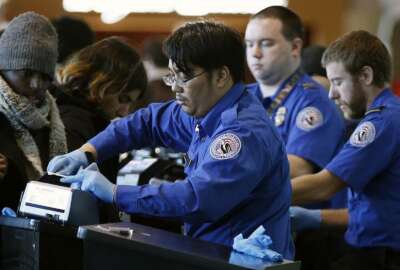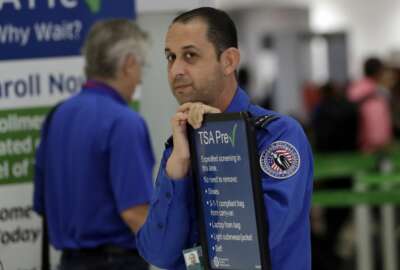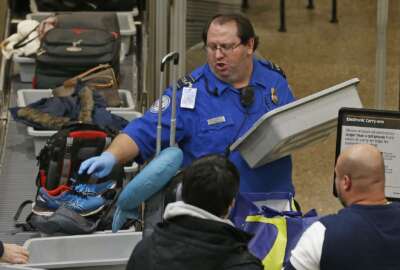
What to do about the TSA? Hint: Pay them more
TSA is advised to pay officers more but not to put them in the General Schedule.
I’ve said it before and I’ll say it again. If you want to see difficult work in action, go to the airport and observe the Transportation Security Administration. From the public’s point of view, the typical TSA officer manages a reasonably pleasant demeanor. If I was a TSA officer, I’d be biting heads off after about 30 minutes into my shift. Let’s face it, TSA jobs are tough. The flying public doesn’t always present the most flattering picture of the US population.
If you encounter a grumpy TSA officer, maybe he or she isn’t frowning at you but at the fact of a lousy boss?
I once chatted with a TSA officer over by a back corridor, I think at Baltimore/Washington International Thurgood Marshall Airport. He was taking a break from his job of inspecting luggage. Those folks have to wear double rubber gloves. You and I are normal; we put our shoes, clothes and a zipped up toiletries kit in our luggage when we travel.
All right, sometimes I throw in the Swiss army knife I got in 1968. I’ve never actually needed my Swiss army knife, but I like having it and of course you can’t carry it aboard. I may yet use the corkscrew on a bottle of wine somewhere. This agent rolled his eyes at what they see upon opening luggage. Terrible, disgusting, gooey things they have to rifle through.
This Memorial Day weekend a lot of people will be flying and encountering TSA. I’ll be home, riding in Rolling Thunder and if you watch, my Harley’s the one with light gray tank and fenders.
Judging from the rate of turnover of its front line officers — 27% — TSA is an agency in distress. It suffers from a bouquet of personnel-related problems. They’ve been documented by the oversight people for years. Now Administrator David Pekoske has received a detailed analysis of HR he commissioned from the services firm ICF. One of ICF’s senior vice presidents is Jeff Neal, a former Department of Homeland Security chief human capital officer.
Not surprisingly, low pay is one reason for why TSA officers leave in droves, but agency officials already knew that. ICF recommends “targeted” rather than across-the-board raises, to be most efficient with fixed dollars. Low pay is likely a smaller issue at, say, Friedman Memorial Airport in Hailey, Idaho, than at John F. Kennedy International Airport.
Related Stories

TSA leaders promise to make the agency a better place to work
It may be a truism among HR specialists that people don’t work for money, but rather for great bosses, missions, and self-fulfillment. But neither do they work for free. So at some point the table stakes of pay simply have to be sufficient to attract good people.
But pay along doesn’t account for all of TSA’s transportation security officer problems. Leadership quality, the panel found, varies a lot. It recommended TSA executives find a way to transplant good leadership practices and weed out the poor managers. The review found fault with TSA’s Office of Human Capital. People panelists interviewed didn’t like its lack of strategic thinking, hiring and pay, and information technology. Bad IT often accompanies wider issues, just as C-rations accompanied Army personnel issues during Vietnam.
Copyright © 2025 Federal News Network. All rights reserved. This website is not intended for users located within the European Economic Area.
Tom Temin is host of the Federal Drive and has been providing insight on federal technology and management issues for more than 30 years.
Follow @tteminWFED





